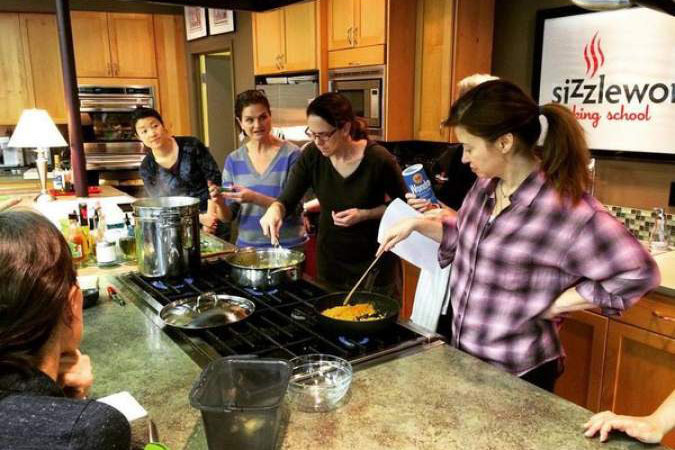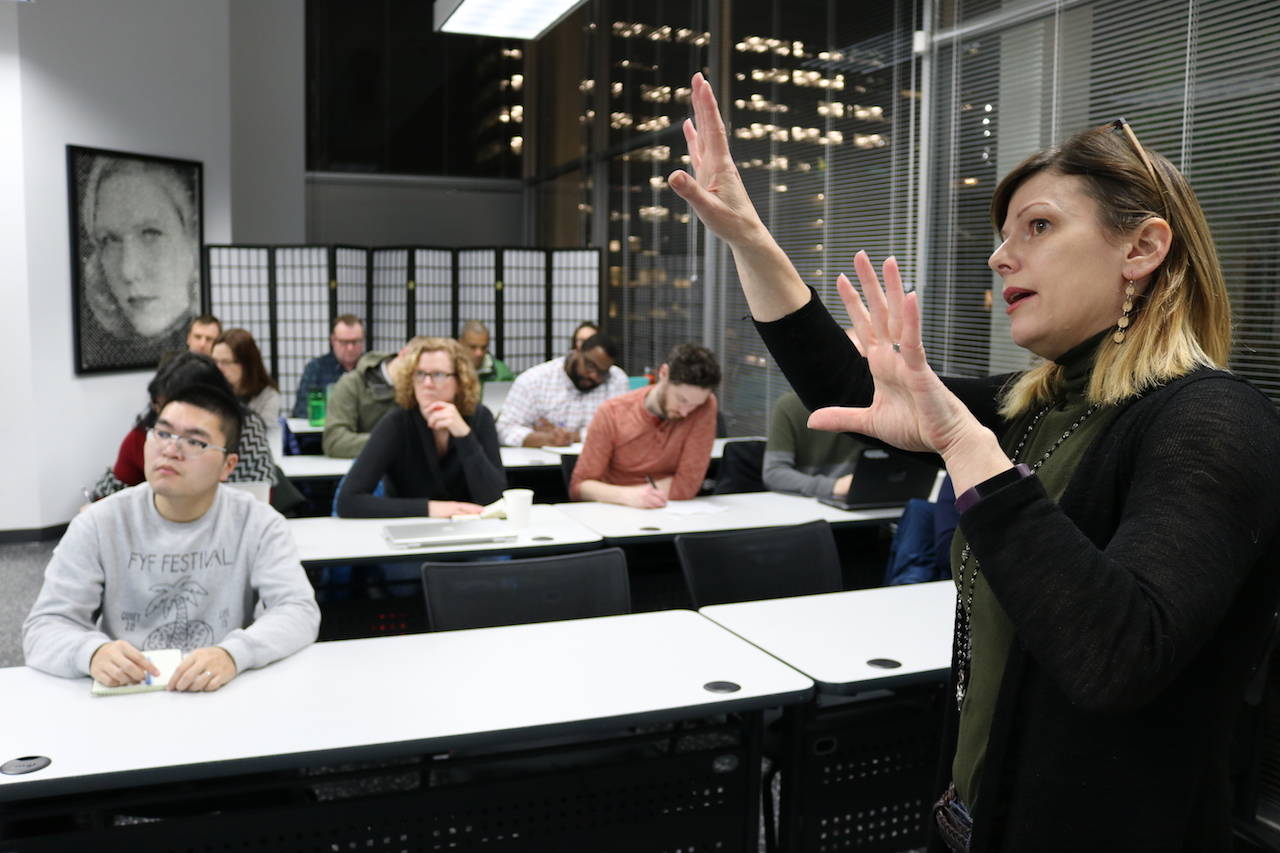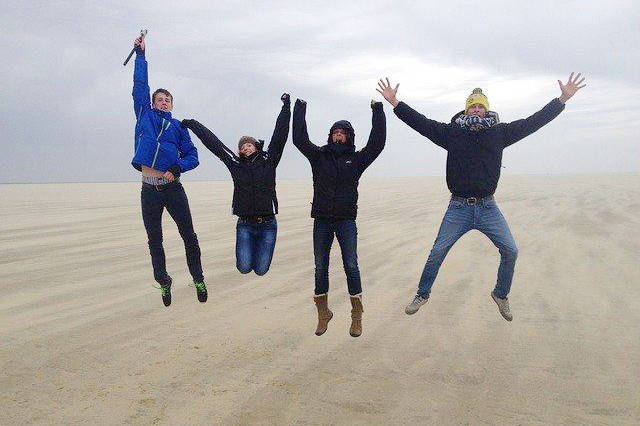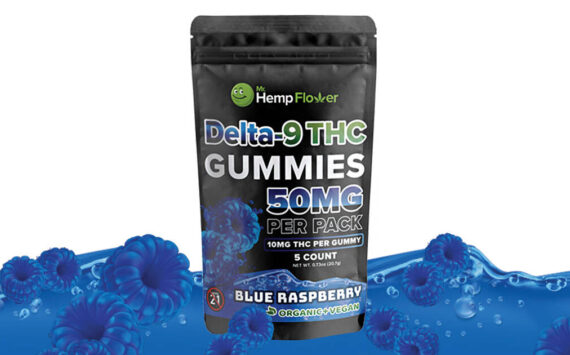One thing that always surprises my students is if you put a little bit of vinegar on your cutting board before you chop onions, they will not make you cry,” says chef Carol Dearth.
Dearth knows how to make cooking easier. But she doesn’t just show the students at Sizzleworks, her Bellevue-based cooking school, the tricks of the trade. She explains how those tricks work.
“When you slice an onion,” she says, “you expose a sulfur compound. When it hits the air it turns into sulfur dioxide, which is the same thing that makes your eyes burn in smog. Put the vinegar on the cutting board, and the acid that’s present stops the reaction from happening, so the sulfur dioxide is not formed, meaning you won’t cry.”
See, to Dearth, cooking is just chemistry, and that’s what makes it fun as she teaches her students that takeout isn’t the only alternative to tears in the kitchen. Since she founded the school in 2007, Dearth has focused on the how and why of each step, helping her students build a healthy meal in the process. She explains each ingredient’s effect on a dish and on the people consuming it. It’s this hands-on approach that sets Sizzleworks apart in a city full of kitchens catering to curious foodies. That, and her impressive credentials.
As the wife of a Navy officer, Dearth has traveled the world. And at each stop, she’s studied, learning pasta in Naples and pastries in London. As each locale brought a new cuisine to her table, Dearth began to find constants, like sulfur in onions.
“I had a lot of questions about why, when I would do something, something would happen,” she says. “Something else, something different would happen.” Now, “I’ve taught for nearly 28 years. I know what questions are going to come up,” she explains. This meticulous study is one of the reasons she is able to demystify the kitchen for students who are maybe more familiar with code than a cookbook, more accustomed to producing reports than rendering fat, or more comfortable on the sales floor than at the kitchen counter. For those who find the seemingly simple science of cooking ultimately daunting, Dearth’s class can come as a revelation. But they don’t always come to the light willingly.
“People who eat out all the time don’t necessarily sign themselves up for a cooking class,” chef Carol admits. “They’ll either come in because their friends drag them, or they’ll come in because they’re part of a team that’s coming in for a party.”
But often the learning curve is what gets people hooked. “We usually get them very involved in the cooking process, and suddenly they decide it’s fun and then they come back to learn more.” Once the building blocks are set, it’s easy to conduct your own experiments.
What Sizzleworks offers is not just a meal, but a chance to surprise yourself. Dearth says that one of her students, “a lady from Leavenworth, doesn’t cook at all. And she called me, about a week later, and said ‘I actually made a cake from scratch, I’ve never done that before. And you encouraged me.’ ” Turns out being a lifelong student makes Dearth a great teacher. Register for Sizzleworks classes at Connect2Classes.








